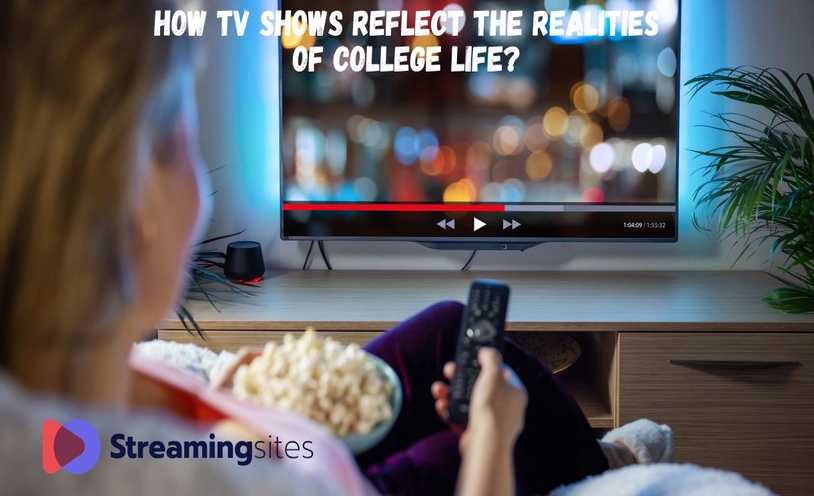
How TV Shows Reflect the Realities of College Life
Everyone seems to have a narrative about college. College is a rollercoaster whether it's late-night study sessions, connections that seem like family, or the turmoil of life. But concerning TV shows? Are they merely passing us too dramatic stories or do they understand it correctly? Let's examine how TV presents college life and see where it strikes home and where it veers creatively.
TV shows rarely portray the true grind of academic life in college. While characters seem to breeze through exams with last-minute cramming, real students face intense pressures. From juggling multiple deadlines to completing research papers, the workload can often feel overwhelming. This is where EduBirdie can do your homework online. Whether you’re dealing with complex assignments or tight deadlines, professionals can provide the academic support you need to succeed.
The reality is that academic success takes effort, discipline, and smart strategies. Attending lectures, staying organized, and ensuring you do homework consistently are all essential steps. But even the most dedicated students sometimes need extra assistance. Platforms like EduBirdie make it easy to access expert guidance, helping you navigate challenging assignments and improve your performance. This type of reliable support can be the difference between struggling and thriving during your college journey.
While TV shows may simplify the academic side of college for entertainment, the real-life challenges are far more complex. By seeking help from trusted sources, like EduBirdie, students can manage their workload effectively and focus on what truly matters: building knowledge and achieving their goals.
Ah, the usual suspects: wild parties, impossible love triangles, and the "magical" ability to miss lessons yet ace finals. If you have seen series like Greek, Gossip Girl, or Community, you have most definitely seen these cliches repeated.
Often the highlight of these presentations, parties create a picture of limitless fun. Indeed, actual college students enjoy a great party, but do they really happen every week with beautiful lighting and matching clothing? Possibly not. Love triangles create for rich TV drama, too, but most students are more worried about surviving tests than negotiating a soap-opera-worthy romance.
Though they are fun, these clichés sometimes oversimplify the college life. They highlight the drama and enjoyment, excluding the daily reality that many students live. Hey, who wants to see a program on someone spending hours in the library or doing laundry?
The friendships in college life on TV are among its better features. Though primarily about post-college life, shows like Felicity and Friends stress the strong ties that develop throughout this period of life. From oddball housemates to encouraging classmates, these relationships seem real. They remind us of the delight in discovering "your people" in a different setting.
On TV, though, romantic connections sometimes go into fantasy land. Though in fact it's primarily about juggling time zones and poor Wi-Fi connections, long-distance love in series like The L Word: Generation Q is shown as both intense and glitzy. And don't overlook the ideal, drama-filled breakers and make-overs that TV feeds on—often far from the messy, calmer truth.
College is about so much more than essays and lectures. Key components of the experience are extracurricular activities, activism, and athletics; some shows brilliantly portray this. See Friday Night Lights, for example. Though mostly on high school football, its themes also highlight how sports could define a student's identity and spill into the collegiate scene.
Another great is Dear White People, which addresses student activism and identity. Offering a more detailed picture than most shows, it explores deeply in racism, privilege, and the complexity of university life.
Many TV shows, meanwhile, simplify these elements. While most students struggle to manage one or two obligations without burning out, the protagonist will demonstrate the reader deftly combining clubs, internships, and a social life. It reminds us that TV sometimes gives narratives first priority over reality.
.jpg)
Where therefore, between reality and fiction, is the line? For amusement, TV shows frequently combine reality with a little fiction. They occasionally fall short on more demanding reality, even if they excel in other areas, such as the awkwardness of dorm life or the delight of discovering lifetime companions.
Though it's still underrepresented in college-oriented programming, mental health is getting greater emphasis in shows like Euphoria. Likewise, financial difficulties—a major component of actual college life—are sometimes discounted in favor of more glitzy schemes. On TV, how many college students are employed part-time to help with expenses? not quite sufficient.
Still, let's not be overly severe. At their best, these shows make us laugh, motivate us, and taste the highs and lows of college. Though they're not flawless, they mirror what we want—or fear—college could be.
A TV show that gets it properly is quite powerful. These events speak to a character trying to fit in or a sincere discourse among pals. Relatable narratives help viewers to realize they are not by themselves in their experiences. Seeing their struggles and successes on film can be consoling—and even inspiring—for college students.
TV shows, for all their appeal, frequently omit important facets of college life. For instance, cultural variety is sometimes reduced to surface-level stories or token characters. Rarely given the limelight are non-traditional students—those juggling family or a full-time job with their education. And how about the calmer, reflective times of college life? Though they are equally as vital, such hardly ever find their way on TV.
TV shows about college life tread a careful path between faithfully capturing reality and building an interesting dream. Although they capture some reality, such as the value of friendships and the excitement of self-discovery, they frequently ignore the more difficult facets of student life. Still, these shows have a resonance with viewers that provides laughs, tears, and much of nostalgia.
Do these depictions, then, equip us for college or are they only entertaining? Perhaps it is somewhat of both. In any case, they provide us something to discuss—and that is something to honor.